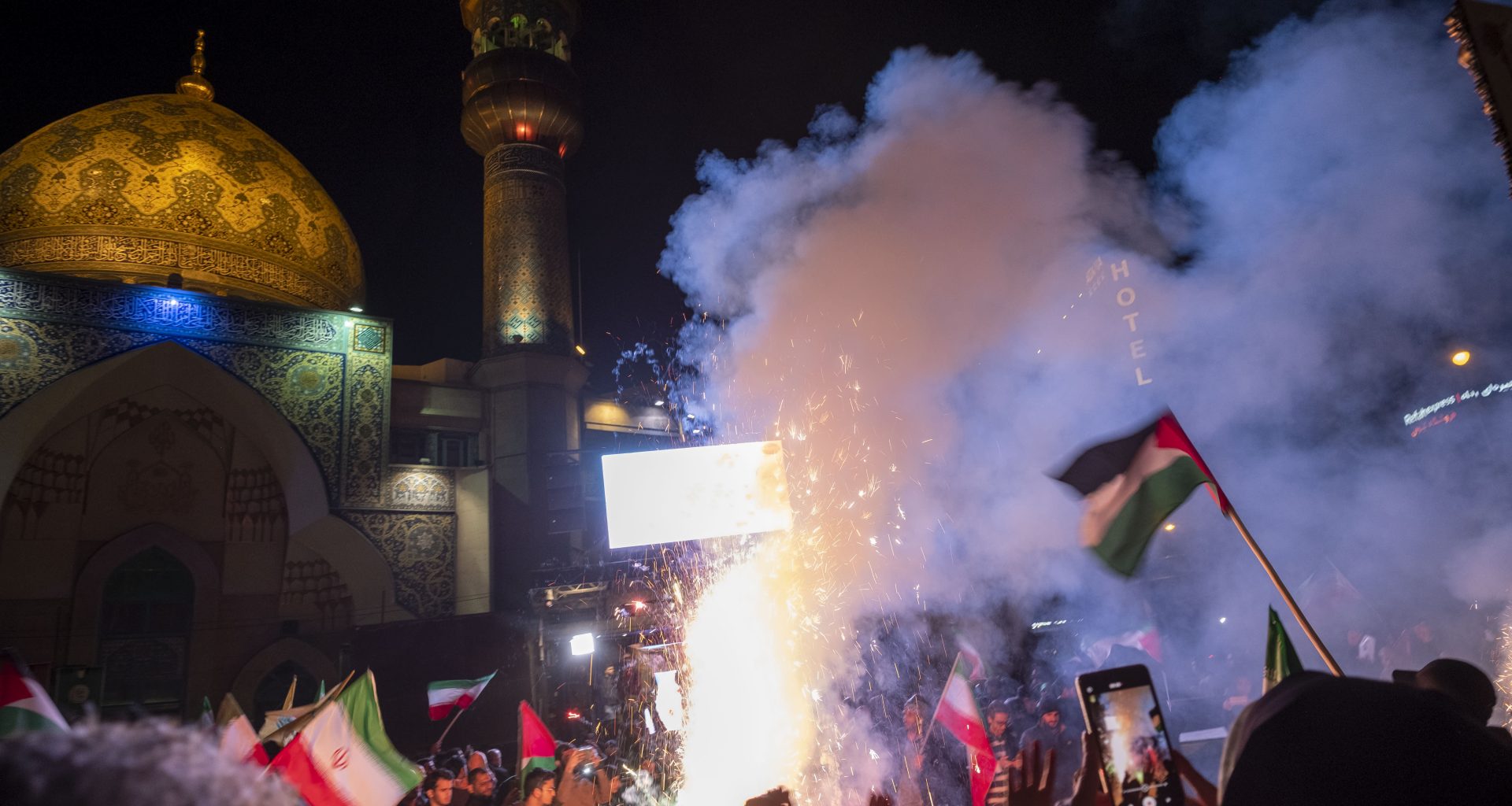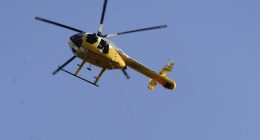
Iranians are waving Iranian flags and a Palestinian flag as they celebrate Iran’s IRGC UAV and missile attack against Israel on April 14, 2024.
Nurphoto | Nurphoto | Getty Images
Iran rained a deluge of drones and missiles on Israel on Saturday night in response to a suspected Israeli strike that killed top Iranian officials in Syria, in a deep escalation of Middle East tensions.
Israel said it identified 300 “threats of various types” and eliminated “99%” of those bound for Israeli soil, according to an update from an Israel Defense Forces spokesperson, Rear Admiral Daniel Hagari. He said a 10-year-old girl was “severely injured by shrapnel” but reported no additional casualties, adding that “several launches” were also made toward Israel from Iraq, Yemen and Lebanon.
Last night marked the first instance of a direct attack on Israel from Iranian territory. Iran-backed factions – such as Palestinian militant group Hamas, Lebanon’s Hezbollah, Yemeni Houthi and Bashar al-Assad’s Syrian administration – have engaged militarily with the Jewish state.
Earlier on Saturday, Iran’s Revolutionary Guards had seized a cargo ship in the Strait of Hormuz, claiming a connection to Israel.
Iran’s chief of staff of the armed forces, Major General Mohammad Bagheri, said that Tehran’s operation had now concluded and would involve no further actions, in comments carried by Iran’s state-owned Islamic Republic News Agency.
Israel and Iran have been on the cusp of direct conflict since the start of Israel’s military campaign in the Gaza Strip, which came in response to Hamas’ terror attack of Oct. 7. Iran vowed revenge after a suspected Israeli strike on an Iranian consulate in Damascus, Syria, on April 1, which killed several top Iranian military commanders.
“We will not be able to comment on the claims regarding a strike in Damascus,” an Israeli foreign ministry spokesperson told CNBC by email, adding, “Iran’s attack on Israel on the night of April 14th is a direct attack on a sovereign nation, its use of proxies for the last decades and the destabilizing effect of the Ayatollah regime in the region and beyond must end.”
Israel’s Ambassador to the U.N., Gilad Erdan, has also called an emergency meeting of the U.N. Security Council and “demanded that they condemn Iran’s attack on Israel and designate the Iranian Revolutionary Guard Corps as a terror organization.”
The European Union has blasted Tehran’s offensive: “The EU strongly condemns the unacceptable Iranian attack against Israel,” EU High Representative Josep Borrell said late Saturday on social media. “This is an unprecedented escalation and a grave threat to regional security.”
U.S. President Joe Biden also denounced the Iranian strike on Saturday as “unprecedented” and convened G7 leaders to “coordinate a united diplomatic response to Iran’s brazen attack,” according to a White House statement.
“While we have not seen attacks on our forces or facilities today, we will remain vigilant to all threats and will not hesitate to take all necessary action to protect our people,” he added.
Relations between stalwart allies Washington and Israel had appeared to slightly chill in recent weeks, with Biden warning further support would hinge on Israel taking steps to protect civilians and humanitarian aid workers in the Gaza enclave.
But the U.S. – alongside the U.K. and France, according to Israeli military – intervened to mitigate last night’s Iranian attack and the assault could reignite urgency to pass a key $95 billion bill including funding for Israel and Ukraine, which has passed the Senate but stagnated on Republican opposition in the U.S. House of Representatives.
“In light of Iran’s unjustified attack on Israel, the House will move from its previously announced legislative schedule next week to instead consider legislation that supports our ally Israel and holds Iran and its terrorist proxies accountable,” said House leader Steve Scalise on social media.
“Congress must also do its part. The national security supplemental that has waited months for action will provide critical resources to Israel and our own military forces in the region,” Mitch McConnell, Senate Republican leader, said in a statement. “We cannot hope to deter conflict without demonstrating resolve and investing seriously in American strength.”
Ramifications
Oil futures prices are in focus after intermittently swelling in recent months on trade disruptions and delays caused by Red Sea maritime attacks from Yemen’s Houthi, who claim solidarity with the Palestinian people.
Iran is also home to vast oil resources, which it has been largely routing toward China since the U.S. reimposed sanctions during Donald Trump’s administration.
The Tel Aviv Stock Exchange’s flagship index, the TA-35, was down 0.38% at 10:23 a.m. London time.
In aviation, several airlines grounded or diverted service through the Middle East, following the Iranian attack. Jordan, Iraq and Lebanon have reopened their airspaces after brief closures on Saturday in the wake of the offensive, Reuters reports.
— CNBC’s Emma Graham contributed to this report
Read More: World News | Entertainment News | Celeb News
CNBC










